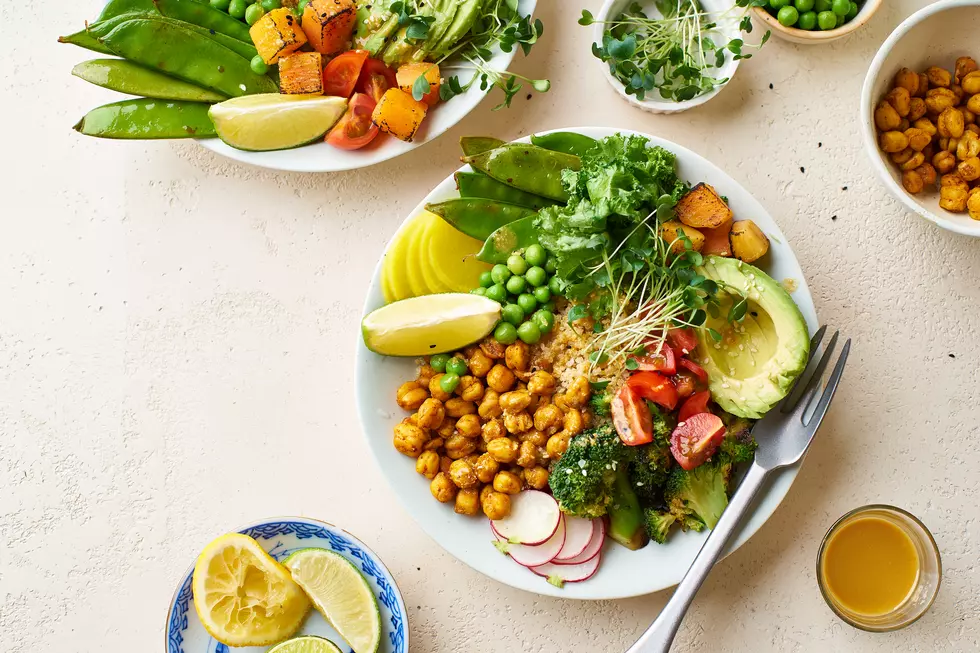
Is Cheese Bad For You? 8 Reasons to Stay Away From Dairy
If you’re like most Americans, you’ve grown up thinking you need to consume dairy to stay healthy. You subscribe to the idea that dairy does a body good because that’s what dietary guidelines tell you. Plus, you need milk, cheese, and other dairy products to build strong bones, right? But now more people are asking: Is dairy bad for you?
The idea that we should switch to non-dairy milk for our health and the planet has sales of almond milk and oat milk soaring, while dairy is losing market share among consumers worried that cows in the U.S. are made to produce more milk by being fed or injected with growth hormones, insulin, and estrogen, all of which make it into your body when you consume dairy.
New non-dairy milks and nut cheeses are replacing dairy by offering options that are as tasty in your cereal, coffee, or on a sandwich as the original, so the question “Is milk bad for you?” is worth asking. And the idea of switching to non-dairy milk is a no-brainer. For anyone who feels they are “addicted” to cheese, there is some truth to that idea, since the casein in both milk and cheese acts on the brain's dopamine receptors, making it hard to quit.
Is Dairy Bad for You?
When it comes to our need for calcium, vitamins, and protein in milk, we have been misled about dairy. “The positive messaging surrounding dairy is both industry and government-backed,” says Dotsie Bausch, Olympic medalist in cycling and executive director of Switch4Good, an organization designed to raise awareness about the dangers of dairy, adding that even most doctors aren’t fully aware of dairy's health dangers, as they get little training in nutrition. “Thanks to massive marketing budgets [by the dairy board and lobby], most people only hear what the industry wants them to hear.”
In a not-so-little white lie, dairy isn’t the health food or drink you think it is, which is one reason Canada recently removed dairy from its national food recommendations, and the sooner you stop consuming dairy, the better.
What is dairy? Anything made from cow’s milk or goat’s milk, including:
- Milk
- Cream
- Cheese
- Butter
When you ditch dairy, you also lower your risk of several diseases, and you lessen your footprint on the environment. If you have ever wondered what milk does to your body, here are eight reasons to unhitch yourself from dairy, for good.
8 Reasons Dairy is Harmful to Your Health
1. Raises Risk of Heart Disease
Milk is the top source of saturated fat in the American diet, says Lee Crosby, R.D., nutrition education program manager at the Physicians Committee for Responsible Medicine. Dairy products are high in fat and loaded with cholesterol, and studies have shown that diets high in saturated fat and cholesterol increase the risk of heart disease, the number one killer of men and women in the US.
An 8-ounce glass of whole milk contains 150 calories and 8 grams of fat, 5 of which are saturated, and 24 milligrams (mg) of cholesterol. Saturated fat is known to raise LDL ("bad") cholesterol, which increases the risk of heart disease and stroke, according to the American Heart Association.
“Dairy products have been linked to two other major diseases, type 2 diabetes and Alzheimer’s,” Crosby says. And choosing low-fat or skim milk, though it may not contain saturated fat, does still have cholesterol and comes with the same potentially harmful side effects.
2. Not the Only Way to Build Strong Bones
Calcium is one ingredient in milk, and since calcium is a building block of bone health, milk has long been credited with helping bone health. But the facts are not that clear, according to Crosby, who points out: “Countries with the highest dairy intake have the highest osteoporosis incidents.”
Studies have not shown a definitive link between dairy intake and lower incidence of bone fractures. You can choose to get calcium from leafy greens, including spinach, kale, Brussels sprouts, and other plant-based sources. Legumes like beans are also high in calcium, as is tofu. You can get calcium from blackstrap molasses (in tea or baked goods) and find fortified plant-based milk or orange juice that has calcium added.
3. Increased Risk of Cancer
Increased cancer risk is another top reason to avoid dairy. Dairy has been linked to breast and other cancers, especially those considered “hormonal” such as prostate cancer. Among males, drinking cows’ milk every day was found to increase their risk of advanced prostate cancer threefold, according to a study from the American Journal of Epidemiology.
Another study in the American Journal of Clinical Nutrition revealed a 32 percent increased risk for prostate cancer among men who had 2.5 servings of dairy per day versus less than half a serving a day.
More studies reveal a link between drinking full-fat dairy and an increased risk of breast cancer. A recent study in the International Journal of Epidemiology found that women who drank just two to three glasses of full-fat cow’s milk a day increased their risk of breast cancer by up to 80 percent.
Among breast cancer survivors, dairy may increase the risk of recurrence, research has found. In a study of women who had already had breast cancer, researchers found that consuming one or more servings of high-fat dairy daily raised the mortality risk by 49 percent compared with those women who consumed less than half a serving a day, according to a study from the Journal of the National Cancer Institute. Several other studies show that dairy products may increase the risk of ovarian cancer, as well.
4. High in Estrogen
One culprit driving these cancers is estrogen. While milk has always contained estrogen, it’s higher now, as modern dairies milk cows into pregnancy. “Estrogens in dairy, along with other components of milk, may be the reason consumers have been found to have higher levels of estradiol, a type of estrogen in the blood,” Crosby says. Estrogen gets passed through the dairy to humans, which is why so many studies are emerging about the link between full-fat dairy and hormonal cancers.
Dairy contains an insulin-like growth factor called IGF-1, which causes your body to ramp up the production of IGF-1, a growth hormone. That’s beneficial if you’re a baby cow – “it turns an 80-pound calf into a 1,400-pound cow,” Crosby says – but not for humans.
Additionally, some milk contains growth hormones, or Recombinant bovine growth hormone (rBGH) given to cows to increase milk production. Cows treated with rBGH tend to develop more udder infections (mastitis), and these cows are given more antibiotics than cows not given rBGH, according to the American Cancer Society. How does this affect human health? The evidence is inconclusive.
While the FDA has said the levels are safe for human consumption if you want to avoid all growth hormones you can choose plant-based dairy products.
5. Causes Inflammation
Athletes are seen posing in milk ads, and chocolate milk has been marketed as a recovery drink, yet dairy appears to cause excess mucus production and inflammation, which can hinder athletic performance, Bausch explains. Too much mucus can make it harder to breathe during exertion, and when breathing is affected, your performance suffers.
What’s more, dairy can cause inflammation which means your cells take longer to recover, so you may not be able to challenge your muscles and joints fully again until your inflammation subsides, or you may get injured trying, something Bausch experienced.
“Dairy is an inflammatory food, and athletes are constantly fighting inflammation to repair broken-down muscles and get back to training,” she says, adding that once she abandoned dairy, her recovery time dramatically shortened, so she was able to train at the same high-intensity level more often. “If you’re inflamed, you’re not at your best, and until you ditch dairy, you don’t know your true limit.”
6. Greenhouse Gasses and Water Use
Raising dairy cows uses more greenhouse gasses and water than producing most plant-based milk., “Dairy is a death sentence for the environment,” Bausch says. “It taxes our planet’s land and water while simultaneously polluting it.” The waste from a dairy farm of 2,500 cows is equal to the waste of a city the size of Minneapolis.
It takes 1,000 gallons of water just to produce one gallon of cow’s milk. “That’s more than any plant milk, including almond,” Bausch says, noting that almonds require more water to grow than most other plants. Dairy farms are also air polluters; producing cow’s milk contributes 38 percent of greenhouse gasses that result from all eccentric emissions, the scientific term for the collective cow burps and farts from dairy cows.
7. Lactose Intolerance
Lactose is the sugar that naturally occurs in milk. You may not realize you have lactose sensitivity until you go off dairy and see if you feel less bloated or inflammation.
Fully 68 percent of the world's population have what’s called lactose malabsorption, which is a form of being lactose intolerant, which shows up as digestive problems or diarrhea, bloating, gas or inflammation, or other physical reactions after consuming lactose.
The easiest way to know if you are lactose intolerant or sensitive is to go off milk and dairy products and see if you feel better. If you add it back in occasionally and experience symptoms, then chances are you have a sensitivity to lactose.
8. Plant-Based Milks & Creamers Are Better than Ever
The good news? Not only do you not need dairy, but there are also so many plant-based dairy alternatives on the market now that it’s easier than ever to dump dairy from your diet.
- The Best Dairy-Free Milks
- The Best Dairy-Free Coffee Creamers
- The Best Vegan Non-Dairy Cheeses
- The Best Non-Dairy Cream Cheese
Bottom Line: Dairy is not the healthy food you grew up thinking it was
There are 8 health reasons to ditch dairy, including the fact that it has been linked to increased risk of cancer, heart disease, and inflammation. If you’re concerned about calcium, you can get the calcium you need from deep leafy greens and other plant-based foods.
The good news? Not only do you not need dairy, but there are also so many plant-based dairy alternatives on the market now that it’s easier than ever to dump dairy from your diet.
The Top 10 Plant-Based Sources of Calcium
More From The Beet









